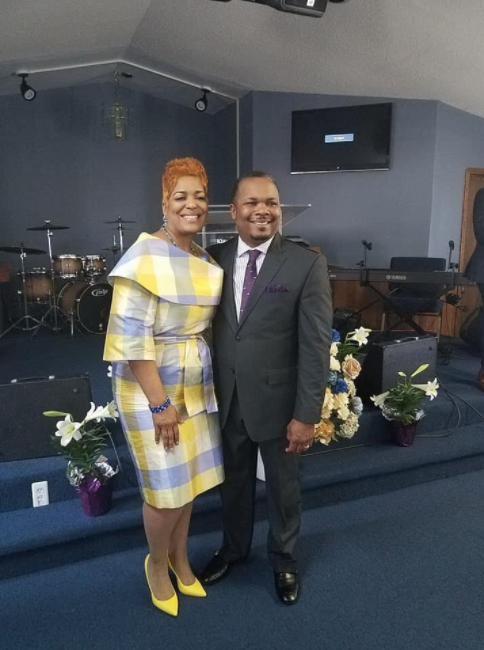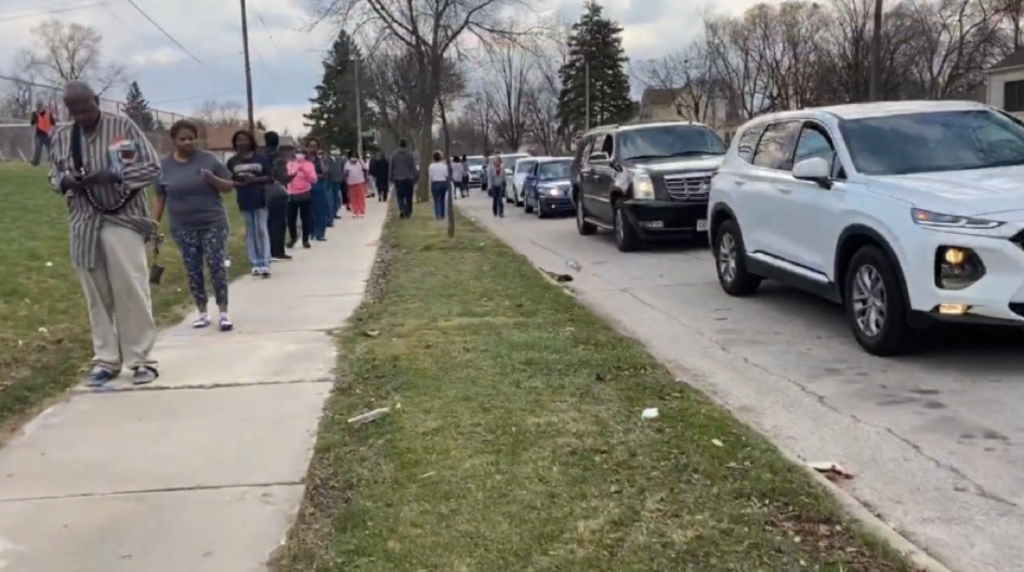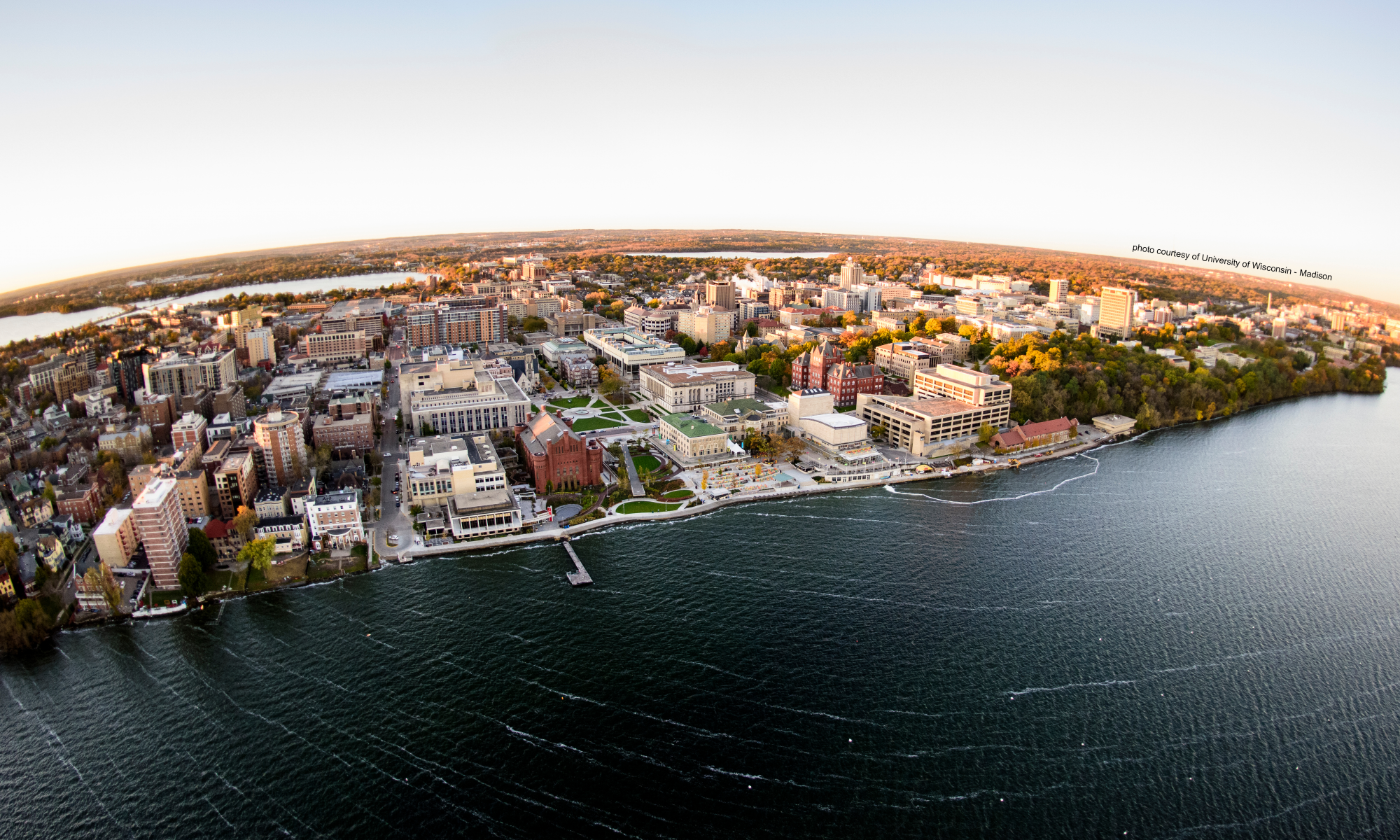Black, Infected, and Unprotected: How Midwest African-American Communities Experience Coronavirus
By Tamia Fowlkes
As COVID-19 sweeps across the nation, claiming the lives of thousands of people across the United States, minority communities remain one of the most predominantly impacted groups in the country, with black Americans being increasingly more likely to contract the virus.
In the Midwest, home to cities like Milwaukee, Detroit and Chicago, these issues expand far beyond access to healthcare, but are also tied to inadequate educational resources, lack of representation in government and socioeconomic status. Whether people contract the virus during religious services, while working or as a consequence of pre-existing health conditions, it is evident to most local citizens that the issue has lacked attention.
Antwain Alexander, a pastor from Flint, Michigan shares how he has watched the virus’ impact on Flint locals. “In the state of Michigan at least, over 40 people I know have died from it,” said Alexander, who contracted the virus in March at a church service. “I have a lot of friends who were checked into the hospital and never left. That’s been the most challenging part of dealing with it, is losing the people you know.”

Alexander’s experience overcoming the virus and witnessing its impact on friends and family members displays just a fraction of the difficulty people have faced in getting tested, recovering and preventing spread. “I caught it at a church service, I believe, and soon after a lot of older leaders that I looked up to throughout my life started to get sick and passed away,” he said.
Despite the variety of symptoms that Alexander experienced it still took several weeks for him to gain access to a test and proper diagnosis. “I went to the hospital twice and never got a test. I ended up getting a test because my doctor and I are really good friends. He called me up because I had been telling him how I’d felt the past few days and he was able to get one for me,” he said. “I met him in the parking lot and that’s where he tested me.”
After nearly a month of being sick, Alexander tested positive for Coronavirus. As one of many cases in the state of Michigan, Alexander said that he was incredibly lucky to have survived and gotten through his sickness without the tremendous struggle some of his peers experienced.
“In the black community, so many people are scared because they have seen so many people dying that they are scared to go out and get sick,” Alexander said, noting how impactful poverty and lack of access to resources has been on people’s safety. “For many people here, they suffer because they don’t have enough money to pay for healthy food which can lead to obesity, they can’t afford housing that allows them to really social distance, some of the water is not fixed in Flint and people are still impacted by lead poisoning.” These issues continue to escalate inequality within the state.
“I think COVID-19 is holding a light up to America and showing the disparate conditions for communities of color,” said Gov. Gretchen Whitmer of Michigan. 44% of Coronavirus casualties in Michigan are black citizens, a population which only represents 14% of the state.
Similarly, citizens in Wisconsin face extreme consequences in confronting the ever growing problems of inequality. According to the Wisconsin Department of Health Services, as of April 23, black people account for 34% of coronavirus casualties in the state of Wisconsin. Despite the African-American population only being 6.7% of the total population, this community has been disproportionately impacted.
As the most segregated city in the country, Milwaukee has reaped what seems to be some of the most damaging consequences of the COVID-19 outbreak. With most reported cases in the state and a large population of black citizens dying from the virus, people continue to wonder why the virus is taking such a toll on black communities.
Whitley Riley, daughter of the first person in Milwaukee to die from the virus, shared her shock on social media saying “I know all of the jokes are funny, but this virus is real. People need to recognize that.” In an interview with the Washington Post, Riley said, “I don’t even know how my dad could have caught this because we are homebodies.”
Conversations about exposure to the virus and safety were highlighted recently in wake of the Wisconsin primary election, in which Milwaukee citizens had access to only five polling locations to accommodate a county which serves over 500,000 voters, according to the Wisconsin Elections Commission. Since the primary, Coronavirus trackers have identified 40 cases related to interaction on Election Day in Milwaukee.
As dissatisfaction grows in these underrepresented communities, individuals who have experienced the virus and have lost family members to it continue to implore fellow community members to stay home. Wisconsin and Michigan’s governors have both faced criticism for their prevention measures, as this week protesters encircled capitol buildings and mayors’ mansions to protest the extension of stay-at-home orders.
“This pandemic shouldn’t be political, but it seems like right now that’s not the case. The leadership in this country is so terrible right now. A country is not a religion or a party. The country should always be about its people,” said Alexander. “If it’s all about Americans and these are the laws that represent us, all of its people, then something needs to change.”

As dissatisfaction grows in these underrepresented communities, individuals who have experienced the virus and have lost family members to it continue to implore fellow community members to stay home. Wisconsin and Michigan’s governors have both faced criticism for their prevention measures, as this week protesters encircled capitol buildings and mayors’ mansions to protest the extension of stay-at-home orders.
As debates continue on the necessity of continued isolation in states across the country, research regarding possible solutions for these problems affecting marginalized communities drives lawmakers, health professionals, and local activists continue to demand equality and adequate care for black civilians and their families.
While in an interview with C-SPAN, Dr. Uche’ Blackstock, Founder and CEO of Advancing Health Equity spoke about the negative relationship between black communities’ neglect during COVID-19 while speaking about the history of black healthcare in America. Blackstock said “It’s not a situation in which black people are not being able to access health care, but also being abused and exploited by the healthcare system.”
“This pandemic shouldn’t be political, but it seems like right now that’s not the case. The leadership in this country is so terrible right now. A country is not a religion or a party. The country should always be about its people,” said Alexander. “If it’s all about Americans and these are the laws that represent us, all of its people, then something needs to change.”
